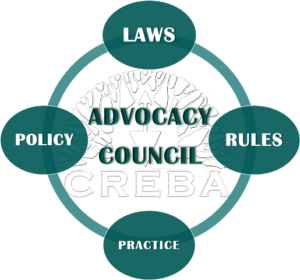Over the years, CREBA mounted strong opposition to the imposition of onerous land taxes, which would have made housing completely unaffordable by the low- and middle-income groups. These taxes included the Creditable Withholding Tax (CWT), the Land Conversion Tax, and the VAT.
Congress subsequently shelved the proposed land conversion tax; the CWT was rationalized to provide lower rates for social housing and habitual transactions; and the VAT Law was subsequently amended to exempt low-income housing packages.
In addition, in response to prevailing situations, CREBA proposed several fiscal and monetary measures over the years, among which were the following:
Retaining the 25% Agri-Agra Allocation
Circa 2009
In support of the Agrarian Program, then President Ferdinand Marcos issued Presidential Decree No. 717 on 29 March 1975, requiring all banking institutions to allocate 25% of their loanable funds to agricultural credit.
CREBA’s research indicated that for years, despite this mandate, a substantial portion of the annual allocation remained unused because the banking sector was averse to lending to the peasant sector due to its poor credit rating.
In 1991, during the consultations on the proposed Urban Development Act, CREBA recommended that the unused portion of the Agri-Agra allocation be included among the funds to be allocated in support of the social housing program. The recommendation did not prosper due to opposition from the banking sector.
However, Congress adopted this recommendation in 1994 when it enacted RA 7835 otherwise known as the Comprehensive and Integrated Shelter Finance Act CISFA).
In 2009, apparently due to calls from the banking sector, a Senate Bill was proposed to revoke the Agri-Agra allocation. In a strongly worded position paper addressed to the Senate, CREBA opposed the move.
Foregoing the 233% Increase in Documentary Stamp Tax
Circa 2004
In 2004, the government floated a plan to raise the documentary stamp tax by 233%. CREBA opposed the measure, in lieu of the deleterious impact on home loan borrowers, given that a documentary stamp is required to be attached to majority of the documentary requirements in the grant of housing loans.
Increased Idle Lands Tax
Circa 1998, 2003
Early in 1973, despite strong opposition by some of its landowner-members, CREBA advocated the imposition of an Idle Lands Tax to curb land speculation and arrest the price spiral of land, which is one of the major cost components not only in housing production but in all businesses as well.
Consequently, CREBA’s recommendation was incorporated in PD 464, otherwise known as the Real Property Tax Code of 1974. The tax was pegged at a maximum of 2% of assessed value.
However, due to political considerations, many LGUs chose not to collect the tax. Thus, land speculation continued to proliferate.
In 1998 CREBA reiterated its call for the rationalization and strict application of the idle lands taxation, as an impetus to more productive use of land, as a revenue-generating measure for local governments, and to provide an additional source for the housing program.
In 2003, CREBA formulated a draft legislative proposal to amend the Local Government Code (RA 7160) which subsumed the Real Property Tax Code.
Interest Rate Cap
Circa 1999
In 1999, interest rates charged the general public soared to as much as 21%, whereas loans by “prime” borrowers were charged only 15%.
The credit squeeze prompted CREBA to advocate for the revision of the formula used in determining lending rates. CREBA’s position paper on interest rates is summarized below:
The high cost of financing, resulting from high lending rates, has been a major deterrent to business expansion and global competitiveness, most particularly for SMEs. It is a major reason for the high prices of commodities and services. It prevents business enterprises from adopting higher wage scales for their workers. It also bloats the cost of government borrowings, thus increasing the budgetary deficit.
Bank lending rates have remained high because they are no longer dependent on market forces. This most important tool of economic, credit and monetary policy is now in the hands of the BAP, rather than the BSP which is mandated by law to maintain price stability and adopt policies that will sustain economic growth.
For the last several years, the formula for determining lending rates has been the benchmark Treasury Bill rate plus a spread of 3% to 8% (recently reduced to 1.5% to 6%). The Treasury Bill rate and spread are both dictated by the banks, which are cartelized due to interlocking directorates and equities.
Exploitation of the economy by this cartel is evident in the fact that while the economy is recently in shambles, the banks have remained largely unaffected by the economic crisis.
To put an end to this exploitation, it is recommended that the BSP be directed by the President to reassert its regulatory authority under the law and retain sole, effective control of interest rate policy.
However, instead of re-imposing rate ceilings as was the case under the Anti-Usury Law, it is recommended that the BSP adopt the formula of intermediation cost plus a fixed uniform spread of 3% to 4%. By intermediation cost is meant: the weighted average cost of the fund mix of savings and time deposits, plus insurance, GRT and the cost implication of the reserve requirement ~ all of which will be determinable only by the BSP under the proposed formula.
With the fixed spread of 3% to 4%, the ultimate lending rate should range between 11% and 12%, as against 16.5% to 21% under the present formula.
To prevent circumvention of the formula, a limit should also be imposed on costs and other charges inputted as overhead.
Under this formula, the viability of banks is assured because a reasonable spread is guaranteed, while the influence of market forces will be met squarely by the BSP through the upward or downward adjustment in intermediation cost.
Social Pricing Legislation
Circa 1999
The essence of CREBA’s legislative proposal was to require all persons or firms selling essential goods in the domestic market to provide for a 20% price discount to underprivileged citizens. Any profit that may be foregone may be easily recovered through a minimal upward price adjustment on sales to non-beneficiaries. Those firms whose profits do not exceed a certain amount per annum are exempt, as are those goods the prices of which are already regulated or are covered by social pricing under existing law.
For those persons or firms who may find compliance with social pricing administratively or operationally cumbersome or difficult, the proposal offered a viable alternative: investment in tax-free, government-guaranteed housing bonds with attractive features. The premise was that social amelioration would still achieved, since the proceeds from said bonds were to be channeled to the millions of underprivileged homeless through interest subsidy on housing loans. In the process, it would mitigate the urgency for government to resort to taxation or other burdensome measures necessary to generate massive additional funding for the much-needed comprehensive housing program.
Sin Taxes & Higher Tariff on Non-Essential Imports
Circa 2000, 2003
CREBA estimated that increasing the “sin” taxes – e.g. cigars, cigarettes and alcoholic drinks – would net P50 Billion per year; whereas higher tariffs on imported non-essentials – such as fancy cars, jewelry, designer clothes, shoes, perfumes, cosmetics, accessories, fancy wines and liquor, etc. – would net an estimated P2 Billion a year. CREBA said:
Higher tariffs on imported non-essential or luxury items would not burden majority of the population, as these items are merely the rich man’s “toys”.
That such “toys” are openly flaunted in the midst of abject poverty, only serves to further fuel disenchantment and widen the polarization between the rich and the poor, even as their importation unnecessarily adds to the country’s foreign exchange reserves problems.
If any, higher tariffs may serve to discourage the rich from wasteful or decadent spending, and encourage them instead to channel their excess cash into more productive ventures or investments that could generate more jobs and income opportunities for the poor and unemployed.
Downscaling Fiscal Incentives to Foreign Investors in Ecozones
Circa 2000, 2003
The Finance Department has estimated that import duty exemptions and tax holidays granted by the government to Ecozone developers had deprived public coffers of some P187 Billion in potential revenues last year.
Majority of these Ecozone developers/operators are foreign investors. It is extremely doubtful that – as claimed by some associations of Ecozone industries – withdrawing these fiscal perks would cause these foreign investors to pull out, or discourage potential investors.
In a survey undertaken by the Foreign Chambers of Commerce prior to the passage of the Ecozone Act, it has been established that the primary considerations of foreign investors in locating their operations in a certain country are not fiscal incentives, but rather:
- Availability of cheap and skilled labor;
- Industrial peace (i.e. non-restive workers);
- Political stability;
- Peace and order;
- Adequate infrastructure, communication facilities and utilities;
- Consistent, stable and predictable economic policies; and
- A streamlined bureaucratic set-up free of graft and corruption.
Withdrawing the fiscal perks for foreign investors would not only considerably brighten the country’s revenue picture. More importantly perhaps, it would level the playing field for local investors and thus enhance their competitiveness, even as it would help eliminate the disenchantment that has rankled owing to the perception that Government has always been predisposed to sacrifice the interests of local investors in favor of their foreign counterparts.
No less than the IMF has endorsed said plan by the Finance Department – citing precisely the need to level the playing field – and recommended that in lieu of fiscal incentives the income tax should instead be reduced to 28% for both foreign and local investors.
Legalization & Taxation of Jueteng
Circa 2000, 2003
CREBA estimated that this would contribute at least P100 Billion annually to local and national coffers. In justifying its proposal, CREBA said:
Jueteng is the only form of gambling available to the poor. All attempts at eradicating it has failed, for the simple reason that it has become deeply rooted in the psyche of the poor – for it gives them hope, however meager, which they simply cannot find in daily toil. The poor simply cannot do without hope – and neither government nor the Church can give them the hope that jueteng gives. It is this fact which makes them prey to jueteng lords and coddlers who operate with impunity outside the law.
Legalizing and franchising jueteng would enable Government to share – via taxation and royalties – in the jueteng lords’ millions of pesos in daily take. More importantly, it would enable Government to regulate this activity in order to protect bettors comprised mostly of the poor, even as it would eliminate a lucrative source of graft among government officials who protect gambling lords.



